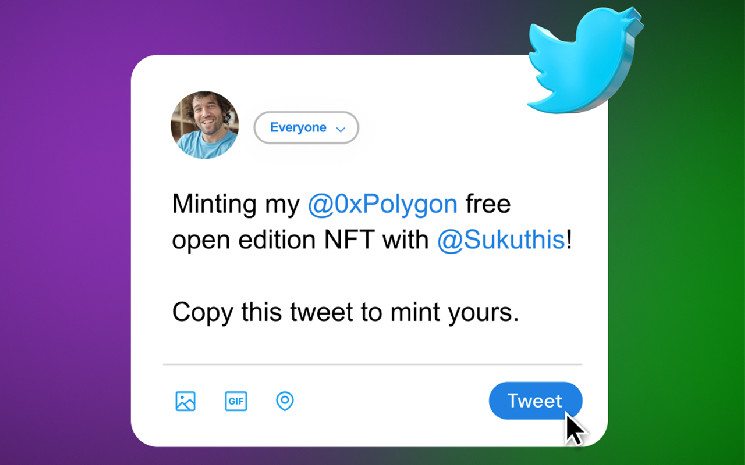Twitter’s recent rebrand to “X” is a part of CTO Elon Musk’s plan to make the social media platform a payments application. However, another crypto company might just beat him to it.
Web3 wallet Suku, a crypto payments application that facilitates transactions over social media platforms, is starting with Twitter to allow users to directly send digital currencies and non-fungible tokens (NFTs) to each other.
Last week, Suku teamed up with sidechain Polygon to host an open-edition NFT mint in celebration of Polygon 2.0’s launch. Within the 48-hour mint period, users minted over 50,000 NFTs simply by posting a tweet tagging Suku and Polygon.
After posting, users were prompted to download the Suku Wallet chrome extension or access the wallet’s website by logging in with their Twitter handle to access the NFT. During the mint period, over 48,000 users opened up Suku accounts.
Yonathan Lapchik, CEO of Suku told CoinDesk that the wallet provider aims to make the crypto onboarding process as simple as possible – and that doesn’t involve “connecting a wallet” in the first place.
“We start with the assumption that we are going to be concentrating a lot of our efforts to bring in non-crypto users,” said Lapchik. “The majority of people will not have a wallet…for us, the first phase is really to give someone a wallet immediately.”
As part of Suku’s plan to usher in adoption, they cover any gas fees users would normally incur when sending or receiving payments.
Suku is starting with Twitter for their first foray into crypto payments and plans to add other social media platforms. While Twitter itself aims to evolve into a payments application, Lapchik said it’s difficult to create a decentralized payments system with one centralized application, therefore Suku needs to expand to other platforms for users to maintain a holistic social graph.
“If you use Twitter, Facebook, Instagram, Reddit and LinkedIn all day, you don’t want to have a payment system for each one of those – you only want to have one that connects to all of the social media platforms,” said Lapchik. “That’s exactly what we do, and when you top that off with being noncustodial and easy to use and easy to onboard, I think that’s a great formula.”
While crypto payments applications have long existed outside social media applications, several companies are beginning to take their products to social platforms. Earlier in July, messaging application Telegram said it will now support users in transferring crypto between chats.
See Also: Is It Finally Time to ‘X-it’ Twitter for Threads?

